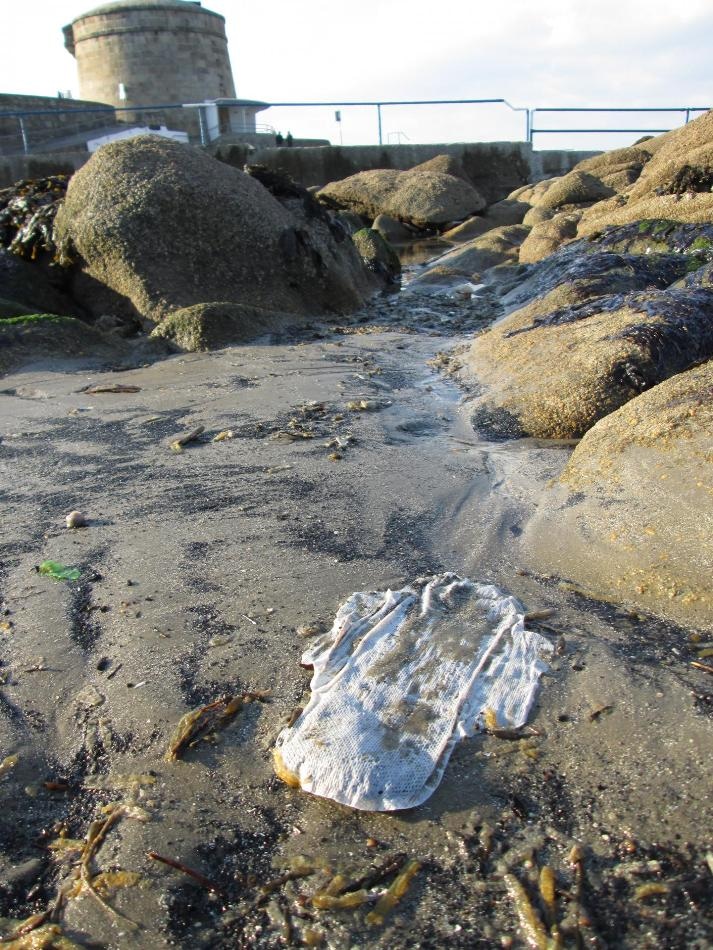Jan 18 2019
According to a new study, more needs to be done to promote awareness about the amount of plastic present in oft-used disposable menstrual products.
 Sanitary pad washed up on a beach in Ireland. (Image credit: Dr Dannielle Green, Anglia Ruskin University)
Sanitary pad washed up on a beach in Ireland. (Image credit: Dr Dannielle Green, Anglia Ruskin University)
The research, reported in the journal Sustainability, was headed by Elizabeth Peberdy of Anglia Ruskin University, who analyzed people’s attitudes as well levels of awareness toward the environmental effect of these products.
The research, which involved an online survey of 300 people and also face-to-face focus groups, discovered that the majority of participants were surprised at the amount of plastic contained in oft-used disposable menstrual products. Nearly a third of the participants surveyed were unaware that plastic is present in tampons, while 20% of them believed that tampons can be flushed after use.
In the United States and Western Europe, tampons are the most widely used menstrual product, with women utilizing an average of 11,000 through their lifespan. As a matter of fact, the majority of disposable products are flushed after use, which can cause the plastics to contaminate ocean ecosystems.
Plastic tampon applicators are often seen on beaches and also inside the bellies of dead seabirds. These products can also contribute to another set of issues. They can gradually disintegrate into smaller fragments in the presence of light. Even the remotest marine environments contain microplastics—tiny pieces of plastic measuring less than 5 mm in size.
In addition, the research showed that people expressing more awareness of plastic pollution were also more likely to utilize organic tampons and sanitary pads, reusable cloth pads, and menstrual cups instead of disposable non-organic products.
Plastic pollution has become a hot topic and whilst there has been a strong focus on plastic bags and other single use items, I felt the hidden plastic in disposable menstrual products was going under the radar and I wanted to know whether other people were aware of the issue. My research showed that many are unaware that tampons often contain plastic, and therefore it is perhaps not surprising that some people think that it is okay to flush these products down the toilet. Our study also found a clear link between people’s awareness of environmental impacts and their choice of menstrual product. This indicates that it should be possible to create a change in behaviour through education, whether through the school curriculum, public awareness campaigns or better labelling on products. It’s a complex issue and one that some people feel awkward talking about, but it shouldn’t be that way. I hope that this research will go a little way towards raising awareness, even if it’s just by sparking a conversation between friends that may not otherwise have happened.
Elizabeth Peberdy, Study Lead Author, Anglia Ruskin University
Peberdy performed the study as part of her Master’s degree in Sustainability at Anglia Ruskin University.
We are delighted to see yet again the quality of output from our Masters students recognised through the publication of a peer-reviewed journal article. This is no small achievement and it is particularly important that taboo subjects such as periods can be tackled through this type of work as plastic waste will not be solved simply by focussing on iconic objects like straws.
Aled Jones, Study Co-Author, Professor, and Director, Global Sustainability Institute, Anglia Ruskin University